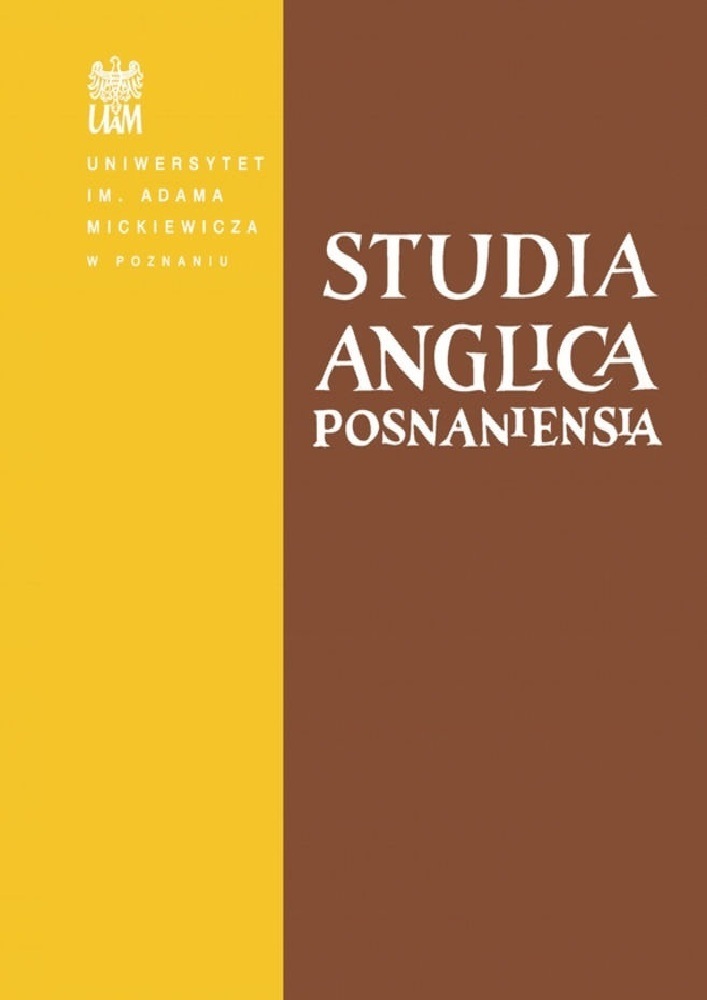Abstract
This essay analyses the life narratives of two European women - Anaїs Nin’s Diary and Eva Hoffman’s Lost in Translation - in order to investigate how their transition to North America affected their sense of self. It emphasises the key role that language and narrative play in the formation of identity, and argues that both writers reinvented themselves both in their adopted language and in writing.
References
Auer, Peter & Li Wei (eds.) 2008. Handbook of multilingualism and multilingual communication. Berlin: De Gruyter Mouton.
Bamberg, Michael. 2009. Identity and narration. In Peter Hühn et al. (eds.), Handbook of narratology, 132-143. Berlin: Walter de Gruyter.
Barker, Chris & Dariusz Galasiński. 2001. Cultural studies and discourse analysis: A dialogue on language and identity. London: Sage.
Bartoszynska, Katarzyna. 2005. The self in nonfiction: Eva Hoffman's autobiographical project. Life Writing 2(1). 3-17. (accessed 23 July 2015.)
Besemeres, Mary. 2004. Different languages, different emotions? Perspectives from autobiographical literature. Journal of Multilingual and Multicultural Development 25(2&3). 140-158. (accessed 18 February 2015.)
Budwig, Nancy. 1995. Language and the construction of self: Developmental reflections. http://www.massey.ac.nz/~alock/nancy/nancy2.htm. (17 January 2015).
Costa A, Foucart A, Hayakawa S, Aparici M, Apesteguia J, et al. 2014. Your morals depend on language. PLoS ONE 9(4): e94842. (accessed 24 July 2015.)
Creet, Julia & Andreas Kitzman (eds.). 2011. Memory and migration: Multidisciplinary approaches to memory studies. Toronto: University of Toronto Press.
Culley, Margot. 1998. Introduction to A day at a time: Diary literature of American women, from 1764 to 1895. In Sidonie Smith and Julia Watson (eds.), Women, autobiography, theory: A reader, 217-221. London: University of Wisconsin.
Eakin, John Paul. 1999. How our lives become stories: Making selves. Ithaca: Cornell UP.
Eakin, John Pau. 2008. Living autobiographically: How we create identity in narrative. Ithaca: Cornell UP.
Firmat, Gustavo Pérez. 2003. Tongue ties: Logo-eroticism in Anglo-Hispanic literature. Basingstoke: Palgrave Macmillan.
Hall, Stuart. 1992. The question of cultural identity. In Tony McGrew, Stuart Hall & David Held (eds.), Modernity and its futures, 273-326. Cambridge: Polity Press.
Hall, Stuart. 1997. Introduction. In Stuart Hall (ed.), Representation: Cultural representation and signifying practices, 1-12. London: Sage.
Henke, Suzette. 2000. Shattered subjects: Trauma and testimony in women’s life writing. Basingstoke: Macmillan Press.
Hoffman, Eva. 1989. Lost in translation: A life in a new language. New York: E. P. Dutton.
Hoffman, Eva. 1999. The new nomads. In André Aciman (ed.), Letters of transit, 35-64. New York: The New Press.
Kazin, Alfred. 1951. A walker in the city. New York: Harcourt, Brace, and the World.
Keysar, Boaz, Sayuri L. Hayakawa and Sun Gyu An. 2012. The foreign-language effect: Thinking in a foreign tongue reduces decision biases. Psychological Science 23(6): 661-668. Sage. (accessed 24 July 2015.)
Kramer, Lloyd S. 1988. Threshold of a new world: Intellectuals and the exile experience in Paris, 1830-1848. Ithaca: Cornell UP.
Kreisler, Harry. 2000. Interview with Eva Hoffman. http://globetrotter.berkeley.edu/people/Hoffman/hoffman-con5.html. (accessed 5 May 2015.)
Li, Xuemei. 2007. Souls in exile: Identities of bilingual writers. Journal of Language, Identity, and Education 6(4). 259-275. (accessed 7 January 2015.)
Nin, Anaїs. 1973. The journal of Anaїs Nin, 1931 - 1934. London: Quartet Books.
Nin, Anaїs. 1975. A woman speaks: The lectures, seminars and interviews of Anaїs Nin. Evelyn Hinz (ed.), London: Penguin Books.
Nin, Anaїs. 1978. Linotte: The early diary of Anaїs Nin, 1914 - 1920. New York: Harcourt Brace Jovanovich.
Nin, Anaїs. 1982. The early diary of Anaїs Nin, 1920 - 1923. New York: Harcourt Brace Jovanovich.
Oster, Judith. 2003. Crossing cultures: Creating identity in Chinese and Jewish American literature. Columbia and London: University of Missouri.
Pavlenko, Aneta. 2014. The bilingual mind and what it tell us about language and thought. Cambridge: CUP.
Philips Casteel, Sarah. 2001. Eva Hoffman’s double emigration: Canada as the site of exile in Lost in translation. Biography 24(1). 288-301.
Podnieks, Elizabeth. 2000. Daily Modernism: The literary diaries of Virginia Woolf, Antonia White, Elizabeth Smart and Anaїs Nin. Montreal: McGill-Queen University Press.
Plaford, Gary, R. 2009. Sleep and learning: The magic that makes us healthy and smart. Plymouth: Rowman and Littlefield Education.
Richard-Allerdyce, Diane. 1998. Anaїs Nin and the remaking of self: Gender, modernism, and narrative identity. DeKalb: Northern Illinois University.
Strawson, Galen. 2004. Against narrativity. Ratio XVII. 428-452.
Tookey, Helen. 2003. Anaїs Nin, fictionality and femininity: Playing a thousand roles. Oxford: Clarendon Press.
Wierzbicka, Anna. 2004. Preface: Bilingual lives, bilingual experience. Journal of Multilingual and Multicultural Development 25(2&3), 94-104.
Wierzbicka, Anna. 2007. Two languages, two cultures, one (?) self: Between Polish and English. In Mary Besemeres and Anna Wierzbicka (eds.), Translating lives: Living with two languages and cultures, 96-113. Queensland: University of Queensland Press.
Zak, Paul, J. 2014. Why your brain loves good storytelling. Harvard Business Review. https://hbr.org/2014/10/why-your-brain-loves-good-storytelling/( accessed 20 January 2015.)
